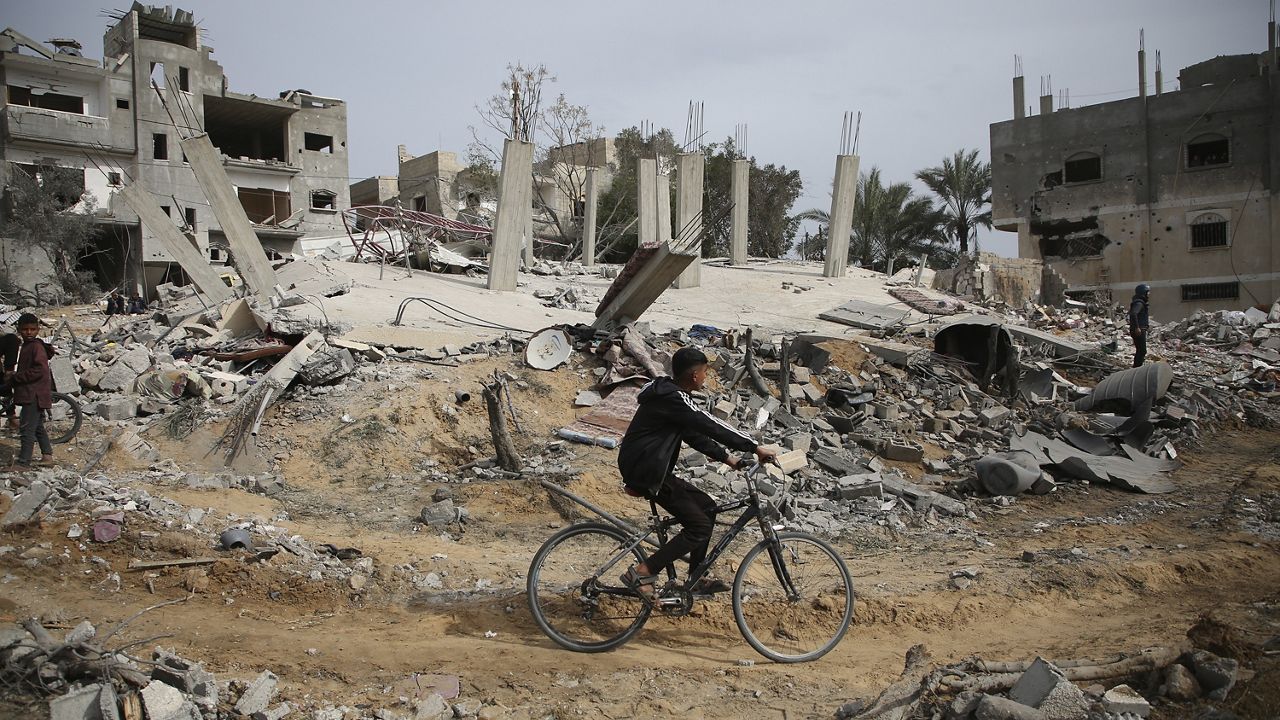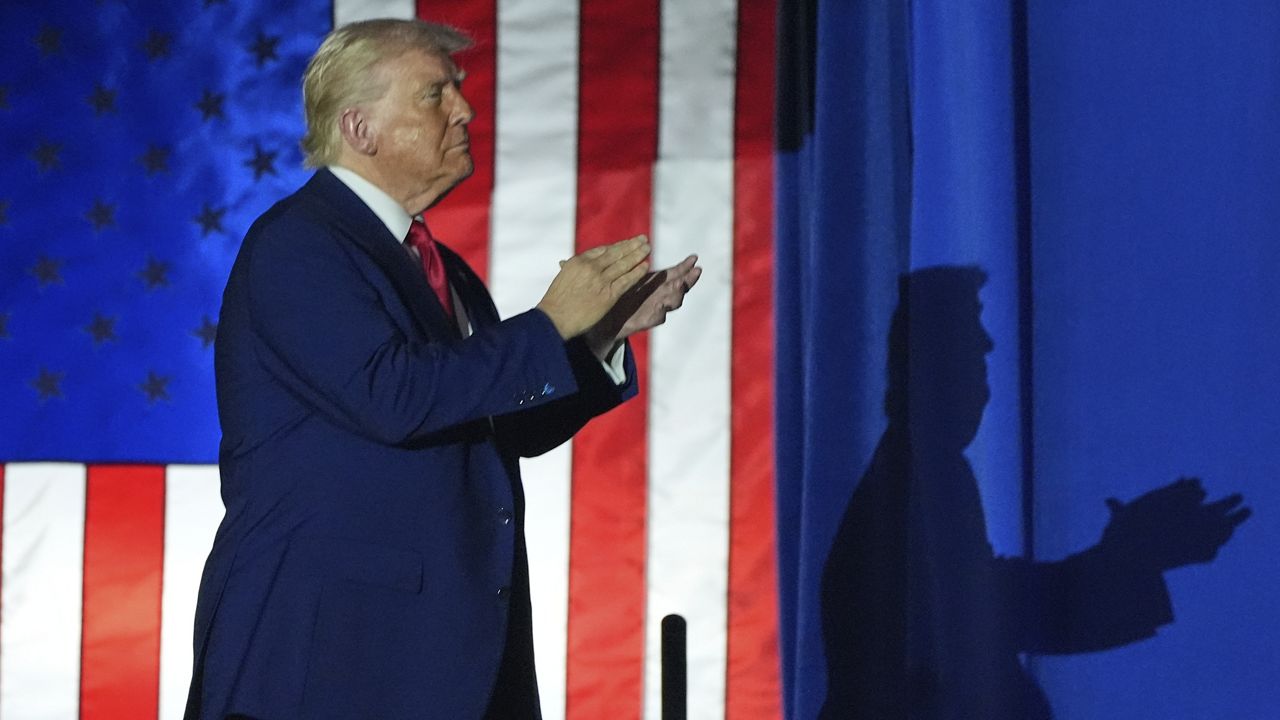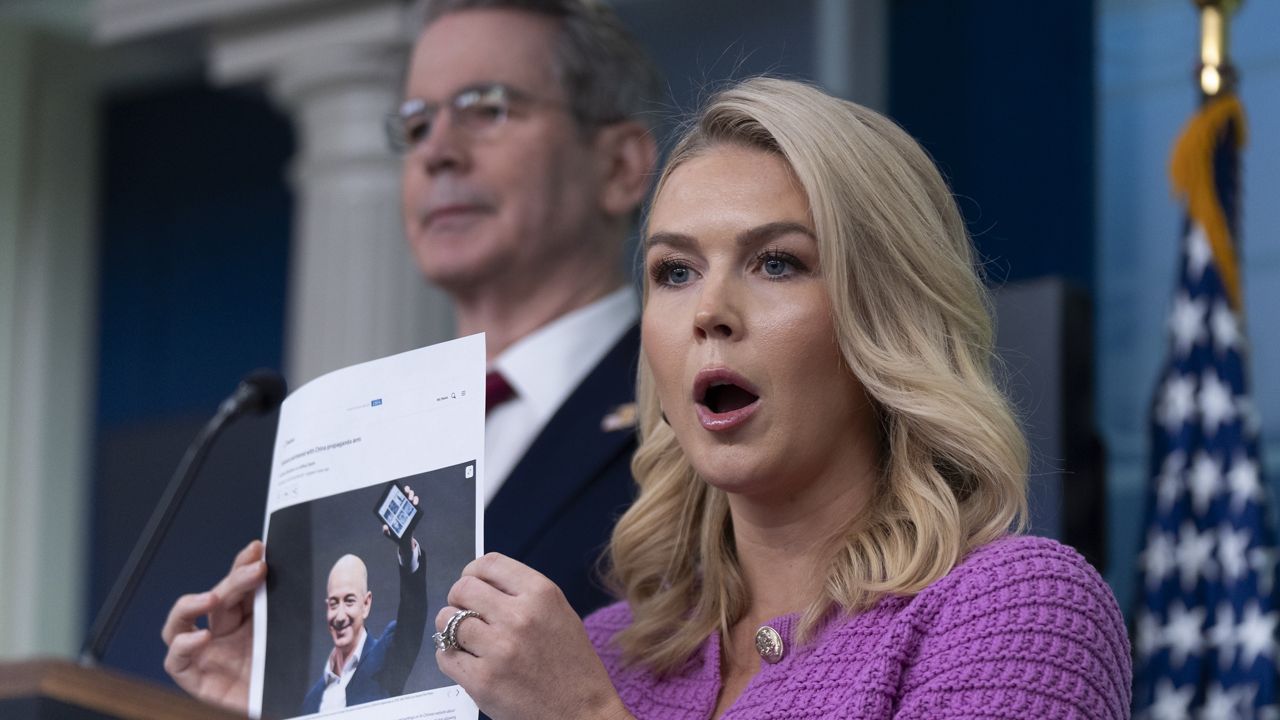U.S. and Israeli officials met virtually to discuss alternatives to a military operation in the Gazan city of Rafah on Monday, one week after Israeli Prime Minister Benjamin Netanyahu scrapped a plan to send a delegation to Washington.
Monday’s conversation, which lasted two hours, according to the White House, included National Security Advisor Jake Sulivan and his Israeli counterpart Tzachi Hanegbi as well as Secretary of State Antony Blinken and Israel’s Minister for Strategic Affairs Ron Dermer. The participants, the White House said, met via secure video conference.
“The U.S. side expressed its concerns with various courses of action in Rafah,” a readout of the meeting from the White House read.
“The Israeli side agreed to take these concerns into account and to have follow up discussions between experts, overseen by the SCG,” the statement continued, using the shorthand of “SCG” for what the White House is calling the Strategic Consultative Group.
The White House went on to note that the group is working toward an in-person meeting that could take place “as early as next week.”
Tensions have flared over Israel’s potential military operation in Rafah, a city in southern Gaza where more than one million civilians are taking refuge amid the monthslong war.
Netanyahu continues to insist that an invasion of Rafah is the necessary next step in its campaign to eliminate Hamas following the group's Oct. 7 attack on Israel that killed around 1,200 people. The White House has made clear it doesn’t support a full ground operation without a plan to protect civilians in the city, which National Security Communications Advisor John Kirby on Friday described as a “difficult chore” for any military.
“There's not a whole lot of geographic space to relocate people in a safe and secure way. That would be a difficult chore for any modern military,” he told reporters on a call. “So we don't support a major ground operation.”
Following a meeting with Blinken in Israel last month, in a statement, Netanyahu said Israel would proceed with its goal in Rafah whether or not the U.S. supports the move.
One week ago, Netanyahu announced he was no longer sending an Israeli delegation – reportedly made up of Dermer and Hanegbi – to Washington due to the United States’ decision not to veto a U.N. Security Council resolution that demanded an immediate humanitarian cease-fire in Gaza and the release of hostages.
The U.S. instead abstained on the measure, clearing the way for it to pass. The Israeli leader argued the decision to abstain demonstrated a change in U.S. policy on the issue.
Kirby, however, insisted U.S. policy had not changed. He told reporters the U.S. could not vote in favor of the resolution because it lacked “key language,” particularly the “condemnation of Hamas.”
At the same time, he said, the U.S. did not veto it because it reflected the administration’s stance that a cease-fire should come with the release of hostages still being held by Hamas.
Two days later, the White House announced the U.S. and Israel were in talks again to set up a meeting on the topic.
President Joe Biden had personally requested that Netanyahu send a team to Washington to discuss Rafah on a call with his Israeli counterpart last month. The White House told reporters that Netanyahu granted the request.
The conversation between Biden and Netanyahu in March marked the pair’s first conversation in weeks amid the tensions over Rafah and the humanitarian crisis in Gaza.
When originally announcing the delegation, Sullivan told reporters that the U.S. wanted to present Israel with an “alternative approach” to a major ground operation.








